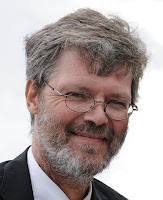by Detlef Palm
Thirty years ago in Nairobi, when I returned from a trip to southern Sudan and told them what I saw and did, my children asked why the UN is not doing more to stop wars or eradicate poverty. My children were young and I thought long how to craft my response.
“The UN is a meeting”, I said. “Country leaders come together to discuss issues and solve their problems. The Secretary General is keeping notes of what the leaders said and agreed.”
My grandchildren will soon be asking the same question. And my answer will probably be the same.
When the large powers or some idiotic despots have messed up the world once again, there will be more calls for strengthening the UN. And the usual debate will ensue, where some say that the UN is a Chat Club, whose bureaucrats earn fat salaries and do nothing but talk; and some will say that if the UN wouldn’t exist, one would have to invent it. There will be those who urge a reform of the Security Council and others will say that nobody cares about small countries anyway and that goals are lofty and promises never kept.
By now, it should have dawned on even the most enthusiastic supporter that the UN is not a world government. “The UN” is neither solving conflicts nor making peace, certainly not where it peace is needed most. Big powers invade other countries with or without Security Council resolutions, and sanctions may be imposed and observed or not. Megalomaniacs, crazed warlords and religious fanatics add to the mix. It is all about old and new spheres of influence and the unwavering belief that one is always right. Everyone wants to shape the world according to his own convictions and interests, and everyone finds his version of the truth more convincing than the version of the truth followed by the other.
UN meetings have been a platform for governments, elected or self-styled, to extoll their worldviews and identify the bogeyman. Leaders of countries consider their counterparts from distant countries to be driven by evil motives and accuse them of being ignorant of science and popular desires. There is an underlying assumption that the other hemisphere is up to no good, notwithstanding that even your adversaries do not plan to end up in hell.
So if the UN is nothing but a meeting of potential antagonists, does it still makes sense?
Better than posturing would be trying to understand what drives the other side. It doesn’t help to impose one’s world view on the ostensible enemy; instead, we need to understand the motives behind the sometimes bewildering political positions, and to also understand the adverse reactions of the other side to our well-meant and totally bona-fide actions. And this means better talking and better listening.
If the UN could help to create a better understanding among the different cultures and worldviews, the important global discussions would be much less antagonistic. As well-travelled international civil servants we in UNICEF have understood that parents everywhere love their children, want to live in peace and wish for a better future. And while their leaders may have wildly different ideas on how to get there, there is no alternative to talking. We need new ways to orchestrate the dialogue. The welfare of children has been the best place to start the conversation.

Yes, the UN has been nothing but a talking shop for a good long time, as observed by one national leader.
ReplyDeleteUnfortunately, the entire world has emulated the UN. Consequently, we are concluding COP 26. 26! and no doubt, a critical portion of the COP 26 report will be a need for COP 27!
The UN has communicating the fundraising 'value' of fiddling and talking while Rome (the world) burns
A good summary of people’s opinions on the UN. The big powers spend billions in creating conflicts which results in displacement of people and then ask the UN to bring peace, which is impossible. The UN will be accused for its failings. The big powers continue to impose its will in changing other nations behaviour, exploit their resources. UN can only watch. Whoever speaks against such tyranny will be deposed just like Butros Butros Ghali. The soft power of the UN is really soft which continue to be hammered by the hard power. People will continue to talk, UN will continue to be blamed, punched, life will go on…
ReplyDeleteThis is a similar story to what happened to me and my son when the massacre of Rwanda happened. Children all over seem to have the same perception, even though they have not met to talk. Perhaps there is hope that the children will change the world if we facilitate, only facilitate the process. But my father used to tell me, in those days of my desperation with the UN, that if the UN=WHO would not have existed, neither him nor his brother would have been alive at that time due to smallpox. For him the UN had to continue and had a function in the world.
ReplyDeleteDetlef, indeed a good summary of how the UN is looked at by many people around the world. I remember vividly the discussions with relatives and friends when I still was in active service. I used to say that at least, the Un brings together the leaders and people from different corners of our world, so that they can see and learn, that the others are also human beings! Not better, not worse but different!
ReplyDeleteI enjoy reading your article. Congrats! What do you think : If UN disappears will anyone notice? I think Yes: not for its accomplishments but for missing the fun of the Talk.
ReplyDelete